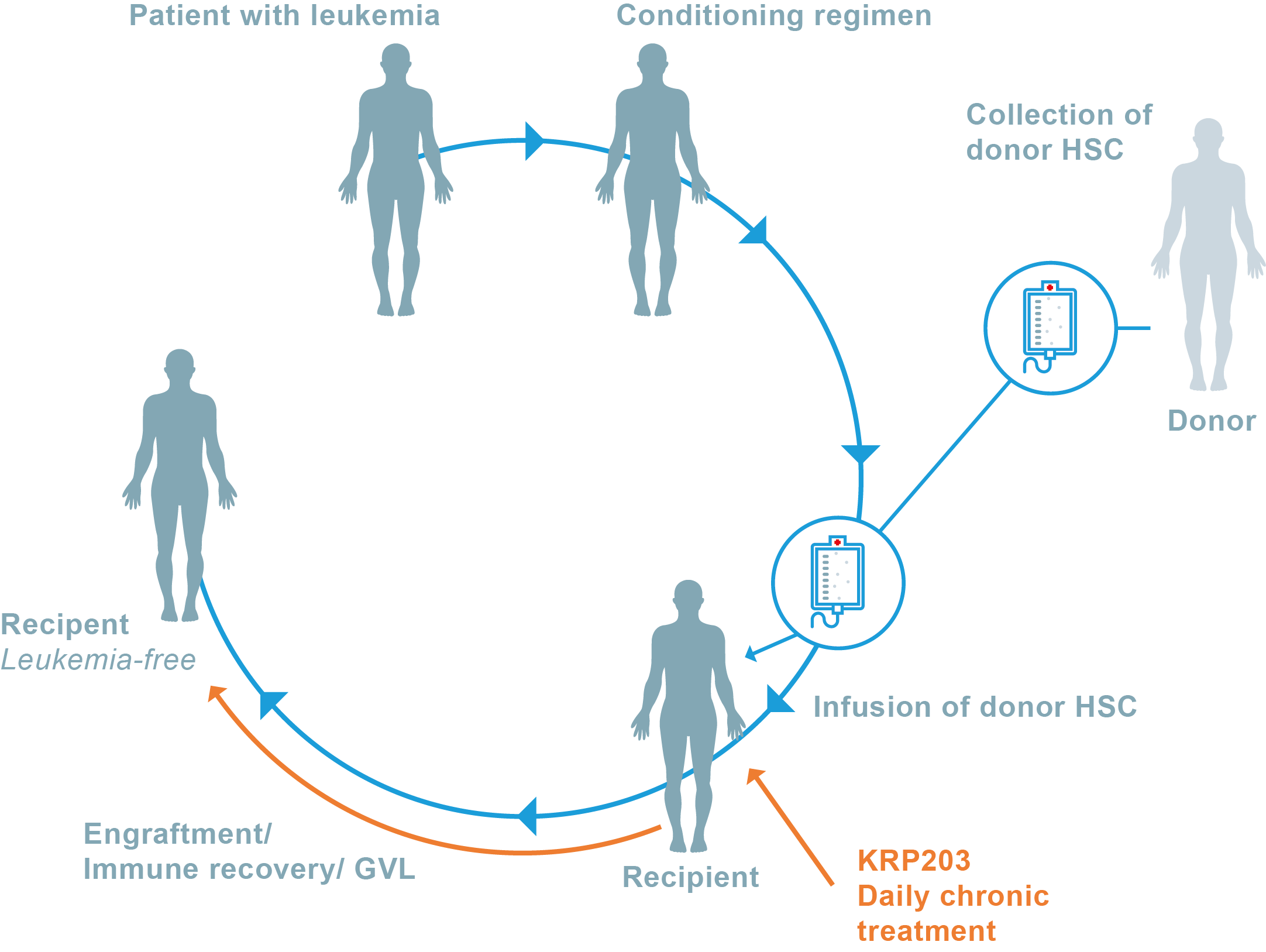Hematopoietic Cell Transplantation (HCT)
Allogeneic Hematopoietic Cell Transplantation (HCT) is often the only curative option for patients with intermediate and high-risk hematological malignancies.
Despite its curative potential, many patients relapse. The key to preventing relapse lies in the graft-versus-leukemia (GvL) effect, mediated by allogeneic donor T cells, which attack leukemia cells primarily in lymphoid tissues like bone marrow.
However, these same T cells cause detrimental graft-versus-host disease (GvHD) by attacking healthy tissues such as the GI tract, liver, lungs, and skin. Mocravimod offers a novel approach by trapping donor T cells in lymphoid tissues, reducing GvHD while preserving GvL, thereby minimizing relapse without compromising the anti-leukemic response.
Mocravimod as an adjunctive immune therapy to allo-HCT

The sequestration of alloreactive donor T-cells has two highly beneficial effects:
- Graft-versus-Host Disease (GvHD) is reduced as the alloreactive donor T cells do not migrate to peripheral tissues
- The retained alloreactive donor T-cells in the lymphoid organs, specifically the bone marrow, eliminate residual malignant leukemic cells that escape conditioning or chemotherapy.

A. No Treatment
Donor T cells leave lymphoid organs, causing GvHD as they attack peripheral tissues.
B. Standard of Care 
Immunosuppressive drugs reduce both detrimental GvHD but also beneficial GvL. Reducing GvL increases relapse risk.
C. Non-immunosuppressive Mocravimod 
Maintains GvL by trapping allo-T cells in lymphoid tissues where the cancer resides and reducing GvHD by preventing allo-T cells from migrating to the circulation and attacking tissue.
